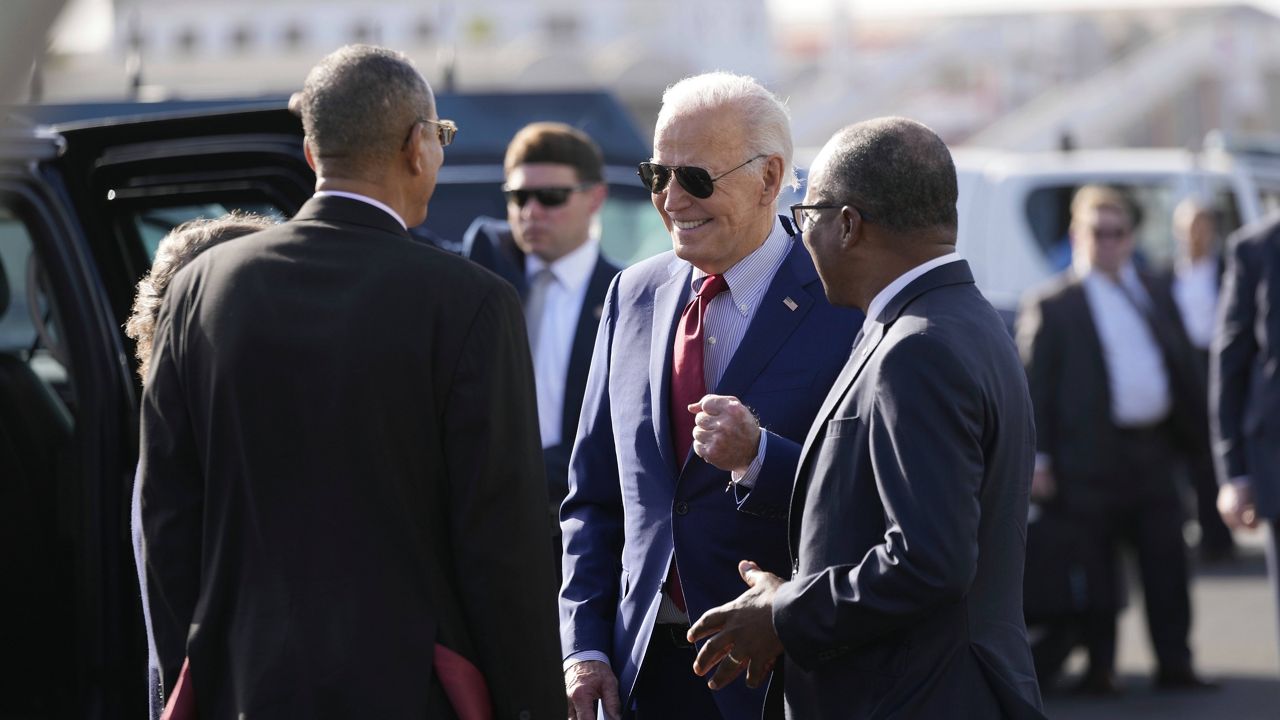LUANDA, Angola — President Joe Biden is finally making his long-promised visit to Africa to showcase a U.S.-backed railway project in three countries that he has pushed as a new approach in countering some of China's global influence.
What You Need To Know
- President Joe Biden is making his long-awaited visit to sub-Saharan Africa to showcase a U.S.-backed railway project across three countries
- Biden's three-day trip to Angola starts Monday and promotes the Lobito Corridor development in Zambia, Congo and Angola
- It's a new U.S. approach in countering China's influence and dominance of Africa's critical minerals
- Biden's trip delivers on a pledge to visit sub-Saharan Africa during his presidency but comes at the end of his term
Biden's first visit to sub-Saharan Africa as president — which he left to the very end — will highlight the Lobito Corridor railway redevelopment in Zambia, Congo and Angola.
Biden starts a three-day trip to Angola on Monday. En route to Angola, he stopped off in the Atlantic Ocean island of Cape Verde off the west coast of Africa for a meeting with Prime Minister Ulisses Correia e Silva.
A new strategy
The Lobito railway project aims to advance U.S. presence in a region rich in the critical minerals used in batteries for electric vehicles, electronic devices and clean energy technologies.
That's a key field for U.S.-China competition and China has a stranglehold on Africa's critical minerals.
The U.S. has for years built relations in Africa through trade, security and humanitarian aid. The 800-mile, $2.5 billion railway upgrade is a different move and has shades of China's Belt and Road foreign infrastructure strategy that has surged ahead.
The Biden administration has called the corridor one of the president's signature initiatives, yet Lobito's future and any change in the way the United States engages with a continent of 1.4 billion that's leaning heavily toward China depends on the incoming administration of Donald Trump.
"President Biden is no longer the story," said Mvemba Dizolele, the director of the Africa Program at the Center for Strategic and International Studies, a Washington-based think tank. "Even African leaders are focused on Donald Trump."
A fit for Trump's vision?
The U.S. has committed hundreds of millions of dollars to the Lobito Corridor alongside financing from the European Union, the Group of Seven leading industrialized nations, a Western-led private consortium and African banks.
"A lot is riding on this in terms of its success and its replicability," said Tom Sheehy, a fellow at the United States Institute of Peace, a nonpartisan federal research institution.
He called it one of the flagships for the G7's new Partnership for Global Infrastructure and Investment, which was driven by Biden and aims to reach other developing nations as a response to China's Belt and Road.
Biden promised to visit Africa last year after reviving the U.S.-Africa Summit for the first time in nearly a decade in December 2022. The trip was kicked back to 2024 and delayed again this October because of Hurricane Milton, reinforcing a sentiment among Africans that their continent is still low priority. The last U.S. president to visit sub-Saharan Africa was Barack Obama in 2015. Biden attended a United Nations climate summit in Egypt in North Africa in 2022.
"I just kind of push back on the premise that this is some Johnny-come-lately trip at the very end," national security spokesman John Kirby told reporters on board Air Force One on the way to Angola, noting that top administration officials had visited Africa, including Vice President Kamala Harris. “This is something he (Biden) has been focused on since he became president of the United States.”



